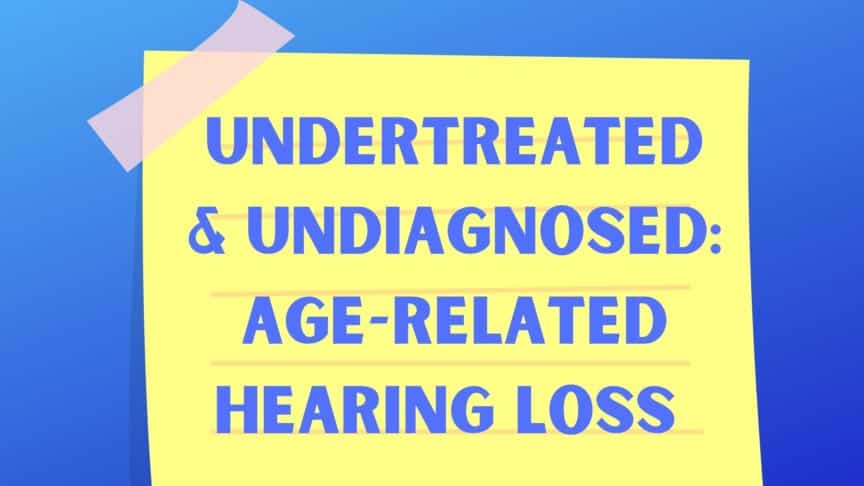There are many causes of hearing loss, however, the most common type comes from a lifetime of listening. It is estimated that one in three people over 65 have hearing loss and this statistic climbs to half of all of those 75 or older in the US. If you are approaching this age bracket it is important to stay on top of your hearing health. While hearing loss begins in the ears it can quickly leak into many other aspects of your mental, emotional and physical health. The sooner you diagnose and treat this issue, the better, especially as you begin to age and desire to do it gracefully.
What Exactly is Age-Related Hearing Loss?
The scientific word used to describe this condition is presbycusis. Hearing loss occurs when the fragile cells of the inner ear are damaged or destroyed hindering the delivery of sound to the brain. In the case of presbycusis, it is caused, due to a mixture of exposure to noise, lifestyle choices and injuries over the years which could have damaged your hearing. This is all too common of a condition, but it is not a “normal” part of aging. By exercising healthy listening practices, eating healthy and avoiding infection and injury, when you can, it can protect your hearing for years to come. Even so, presbycusis is one of the top three chronic health concerns for older Americans affecting half of seniors over 75 in the US!
The Dangers of Untreated Hearing Loss
Presbycusis develops gradually over time, diminishing certain tones or pitches. This makes communicating and keeping up with conversation frustrating and exhausting. In large groups this can be a nightmare, with people speaking on top of others. Many choose to check out or feel lost in these social situations and choose to avoid them all together over time. Even when speaking with just one person, it can be difficult to follow conversation, creating strain and resentment between friends, family members and even romantic partnerships. Strains in relationships can lead to depression, anxiety and loneliness. For a senior demographic, social isolation can be incredibly damaging. In fact, the CDC likened the health risk of chronic loneliness to an equal health risk as smoking 15 cigarettes daily.
Hearing loss is a significant safety issue. When people can’t hear clearly, many warning sounds and clues about our environment are undetectable. This creates many more instances where we are prone to falls, accidents and hospitalizations due to a hearing impairment. Trouble hearing can also impact cognitive decline. The lack of stimulation from struggling to hear, combined with social isolation can put people at a higher risk of developing dementia.
Identifying Presbycusis
The issue is that hearing loss can develop slowly over years. In the early stages you may not even notice it and become used to not hearing these sounds as time passes. This can mean that the condition can progress for a decade or more with people not even realizing they have an issue. However, this does not mean that some of the negative effects of the condition have not already begun to negatively affect your life. Often by the time people realize they have an issue with hearing they cannot hear in even the most ideal of listening situations. Understanding the early signs of age-related hearing loss can help you identify it sooner. If you find that you have to ask people to repeat themselves more often than not, then it is time to schedule a hearing test. Other common signs include;
- Arguments about the volume of TV or radio,
- Trouble hearing over the phone,
- Ringing in the ears
- People sound like they are mumbling when they are speaking to you.
- Trouble hearing in noisy environments
Dealing with Your Hearing Loss
Unfortunately, on average, only 1 in 5 people who have hearing loss ever seek treatment or visit an audiologist. Instead of dealing with hearing loss, people live in denial for years or procrastinate about treating it. The truth is that the sooner you start to deal with your hearing loss, many of the dangerous side effects of the condition can slowly reverse or be avoided altogether. If you suspect you have a hearing loss and are approaching 65 years old, it is a safe choice to have your hearing tested. Protect the quality of your life and schedule a hearing exam today!

